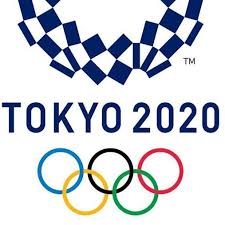ATHENS/TOKYO (Reuters) – A decision on whether to postpone this year’s Tokyo Olympics for the first time in the Games’ modern history will come in days, sources said on Tuesday, as global clamor made a delay look inevitable because of the coronavirus crisis.
The July 24-Aug. 9 Olympics have been the last major sporting event left standing in coming months as the epidemic put most of the world in virtual lockdown.
The International Olympic Committee (IOC) and Japan’s repeated insistence that the event would go ahead as scheduled – and then their weekend announcement of a lengthy, one-month consultation over possible postponement – perplexed many.
With billions of dollars and political prestige riding on the event, Japanese Prime Minister Shinzo Abe and IOC President Thomas Bach were to talk by phone at 1100 GMT on Tuesday.
Japan’s Sankei newspaper said the government was negotiating with the Olympic body to postpone the Games for up to a year, echoing comments by former IOC board member Dick Pound.
Sources within the Olympic movement told Reuters a decision would come in days, possibly before the planned launch of a scaled-down torch relay on Thursday.
“Heartbroken but not surprised,” said twice Olympic champion swimmer Cate Campbell, whose nation Australia withdrew from the summer Games even before a formal postponement announcement.
“To be honest, I’m left reeling and feeling a little lost. But the goal posts haven’t disappeared – just shifted. It’s time to recalibrate and fire up for the next challenge.”
The Olympics have never been delayed in their 124-year modern history, though they were canceled altogether in 1916, 1940 and 1944 during the two world wars. Major Cold War boycotts disrupted the Moscow and Los Angeles Games in 1980 and 1984.
Pressure on the IOC had been accelerating fast in recent days, with Canada, like Australia, saying it would not participate if the Games went ahead.
Other nations have pressed hard for a postponement and a quick decision by the Olympic body to end uncertainty.
“I AM RELIEVED”
Athletes, though sad, were mainly in agreement with a delay, given health risks and disruption to their training as gyms, stadia and swimming pools shut down around the world.
“I have ridden not just a rollercoaster but the entire theme park of emotions,” Keesja Gofers, part of the Australian women’s water polo team, said on Instagram.
“I am relieved. Athletes around the world will now have the chance at a proper preparation and the Olympics can, on whatever date they are held, continue to be a coming together of the world’s best at their best.”
The coronavirus outbreak has raged around the world, infecting nearly 380,000 people, killing more than 16,500 and wrecking sports events from the soccer Euros to Formula One.
“Even if the current significant health concerns could be alleviated by late summer, the enormous disruptions to the training environment, doping controls and qualification process can’t be overcome in a satisfactory manner,” the United States Olympic and Paralympic Committee said.
The United States is by far the most successful nation in the history of the modern summer Games, while the rights deal with American broadcaster NBC to televise the Olympics represents from 50% to 70% of the IOC’s total annual revenues.
“Today the Games are not the priority, the priority is health, and that is how the world of sports contributes to that international solidarity,” Tony Estanguet, head of the Paris 2024 Olympics organizing committee and an IOC member, told France Info radio, predicting a delay.
Japan and the IOC have said calling off the Games entirely is not an option, but a delay would present major logistical difficulties given the crowded global sporting calendar and complex commercial considerations.
World Athletics has said it would be willing to move the 2021 world championships, scheduled for Aug. 6-15 in Eugene, Oregon, to clear a path for a 2021 Olympics.
Postponement would be a massive blow for hosts Japan, which has pumped in more than $12 billion of investment, while huge sums are also at stake for sponsors and broadcasters.
But a poll showed about 70% of the Japanese think a delay is appropriate.

